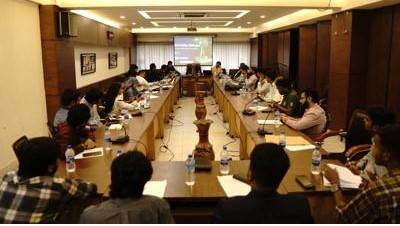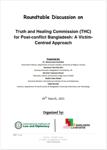
Policy Recommendations Based on the IILD Policy Dialogue on "Trump 2.0: What It Means for South Asia"
Strengthen Diplomatic Relations with Both U.S. Political Parties
- Establish and maintain strong diplomatic ties with both Republicans and Democrats in the United States to ensure stable engagement, regardless of the political climate.
Balance Relations Between the U.S. and China
- Avoid over-dependence on either the U.S. or China, strategically managing relations to safeguard national interests and maintain diplomatic flexibility in the region.
Establish a Lobby House in Washington
- Set up a dedicated diplomatic presence in Washington to improve communication with U.S. policymakers, ensuring Bangladesh’s interests are well-represented in U.S. foreign policy decisions.
Monitor U.S.-India Defense Partnerships
- Track developments in U.S.-India defense relations to understand regional security dynamics and anticipate shifts in South Asia's strategic landscape.
Leverage Silica Reserves for Semiconductor Industry
- Exploit Bangladesh’s abundant silica reserves, particularly from rice husks, to enhance its position in the global semiconductor market, creating opportunities for technological collaboration with the U.S. and other global players.
Focus on Developing a Skilled Workforce
- Invest in education and skills development to transition Bangladesh’s labor force from low-skilled to high-skilled workers, thus enhancing human capital and reducing reliance on foreign aid.
Address Compatibility with U.S. Defense Systems
- Tackle compatibility issues with U.S. defense systems and explore cost-effective procurement options to modernize Bangladesh’s defense capabilities while managing costs and reducing dependency on expensive U.S. technologies.
Continue Participation in U.S.-Led Military Training Programs
- Maintain involvement in military programs such as the International Military Education and Training (IMET) to enhance Bangladesh’s defense capacity and strengthen ties with the U.S.
Position Bangladesh as a Relocation Hub for Industries
- Capitalize on Bangladesh’s infrastructure and favorable investment climate to position the country as a relocation hub for industries moving out of China, particularly in sectors like manufacturing and technology.
Capitalize on Business-Friendly U.S. Policies
- Leverage the business-friendly environment expected under the new U.S. administration to attract foreign direct investment (FDI), building on Bangladesh’s strong international reputation for economic growth.
- Diversify Exports Beyond the RMG Sector
- Reduce reliance on the Ready-Made Garment (RMG) sector by expanding into other industries, such as ICT, pharmaceuticals, and agro-products, which will provide more economic stability and resilience.
- Engage in Dialogue for More Favorable Tariffs
- Actively engage in dialogue with the U.S. to negotiate more favorable trade terms and mitigate the negative impact of protectionist tariffs, particularly in Bangladesh’s key export industries.
By following these recommendations, Bangladesh can effectively navigate the evolving geopolitical and economic challenges posed by Trump 2.0, securing its place as a resilient and proactive player in South Asia and on the global stage.





Leave a reply